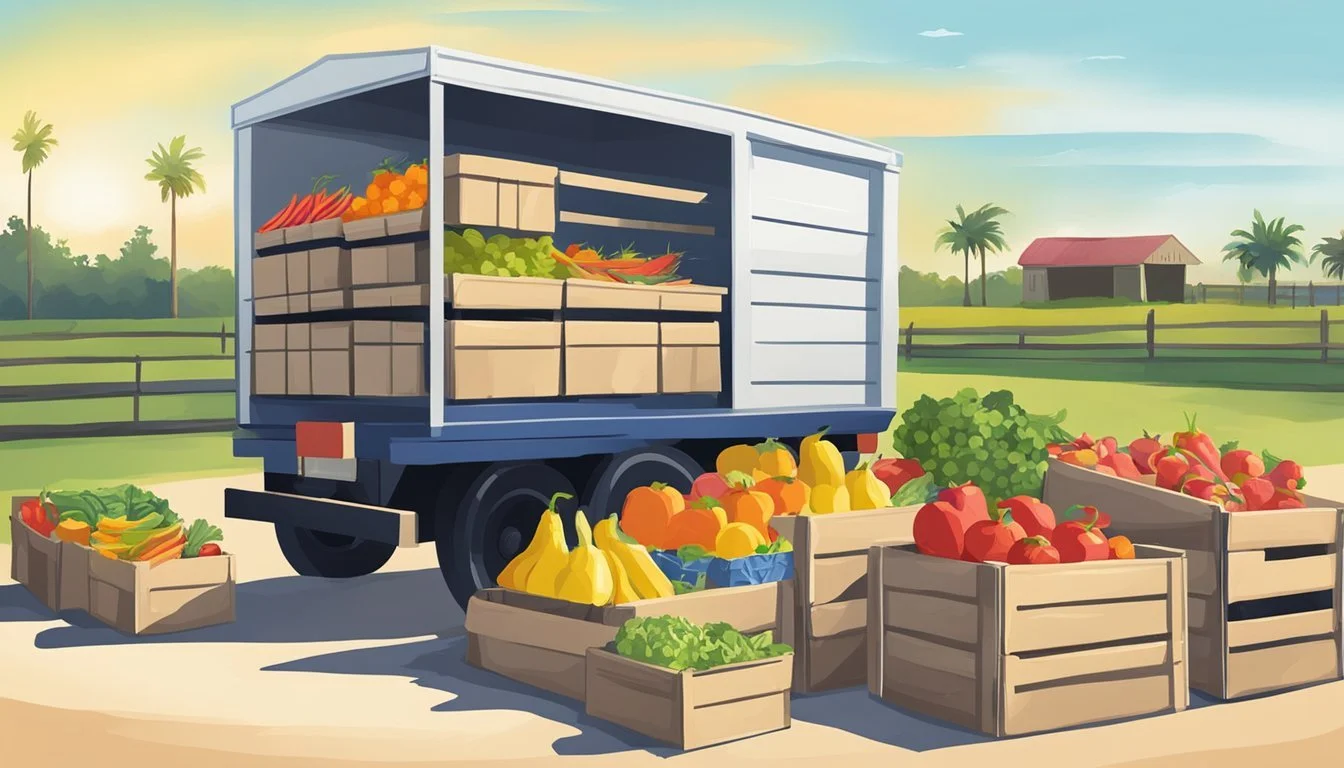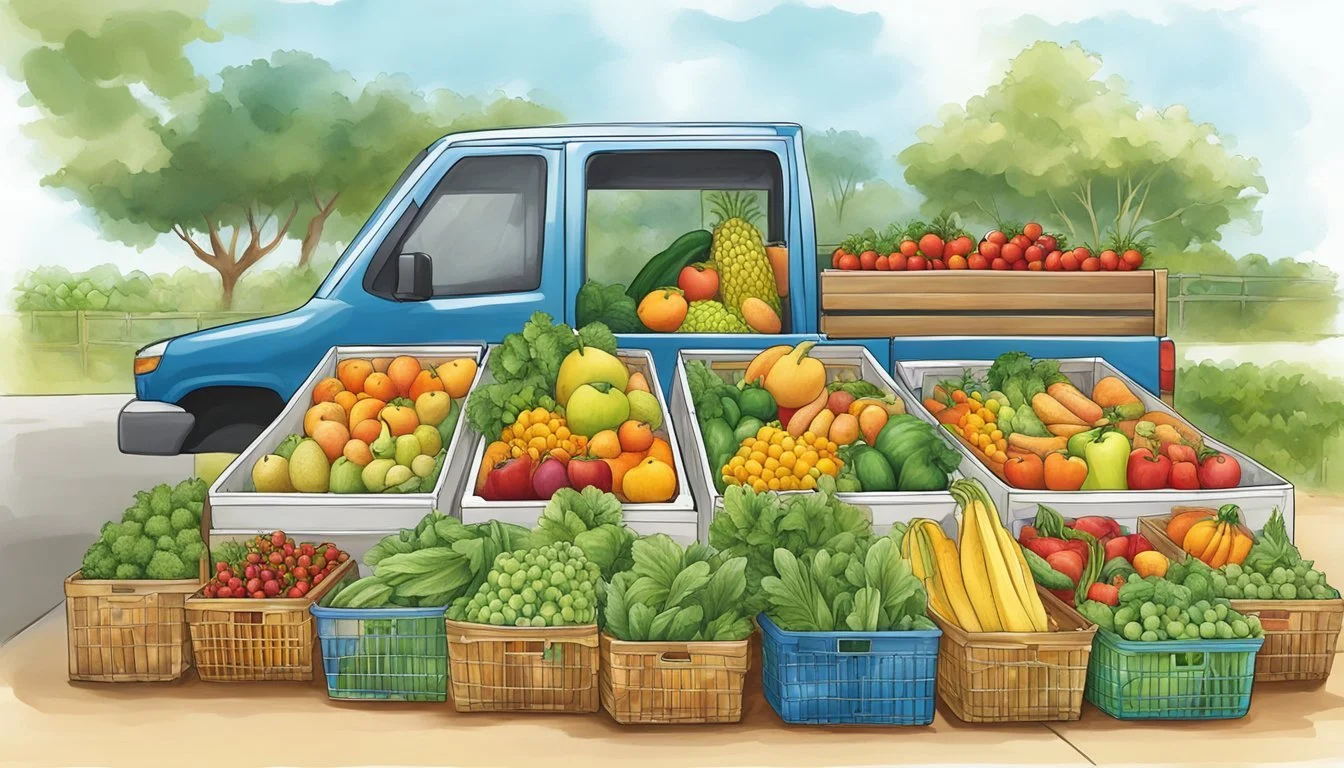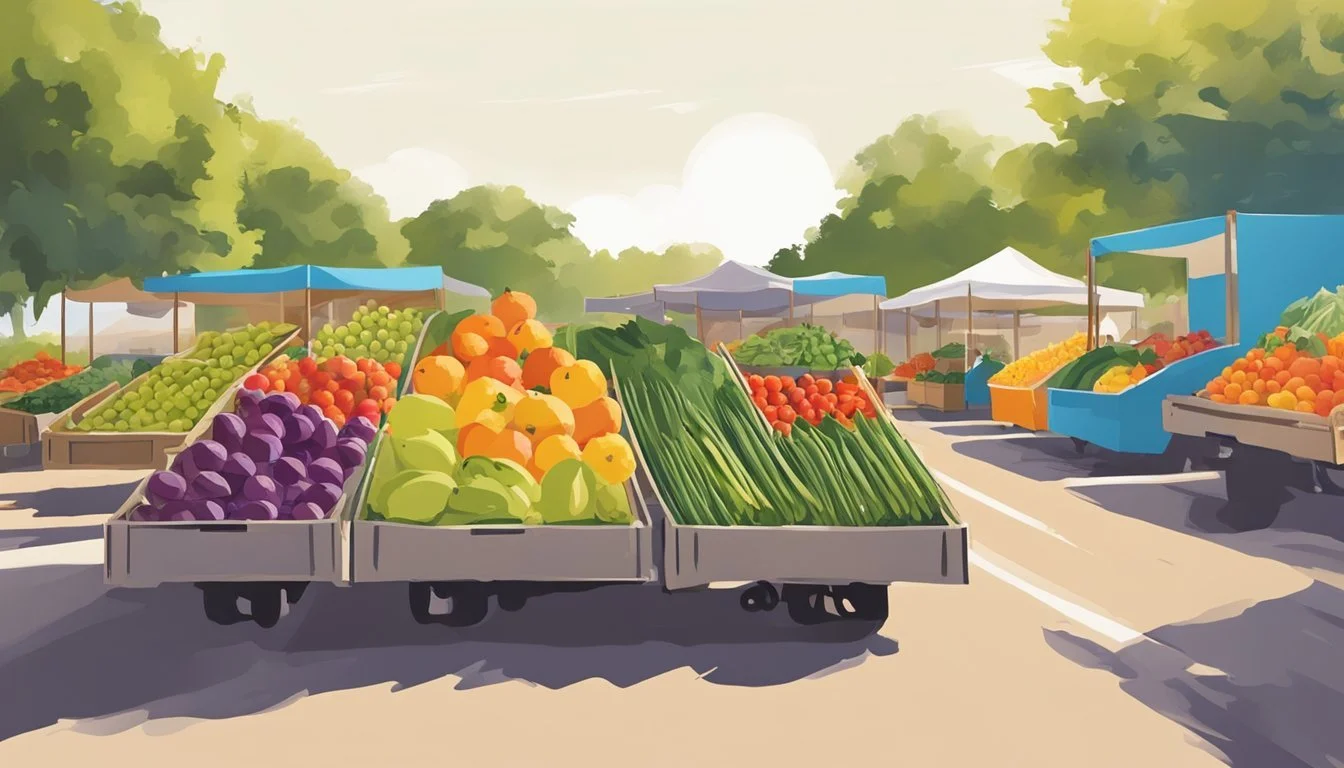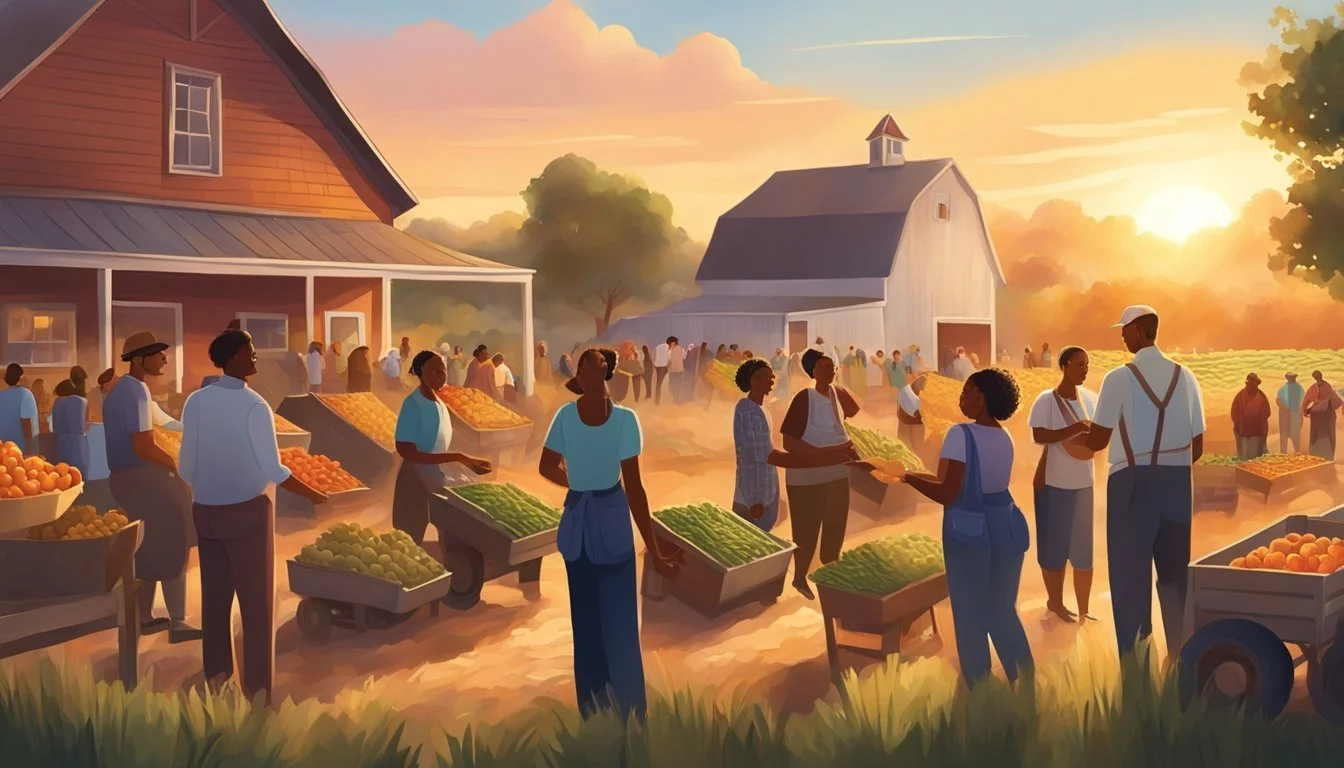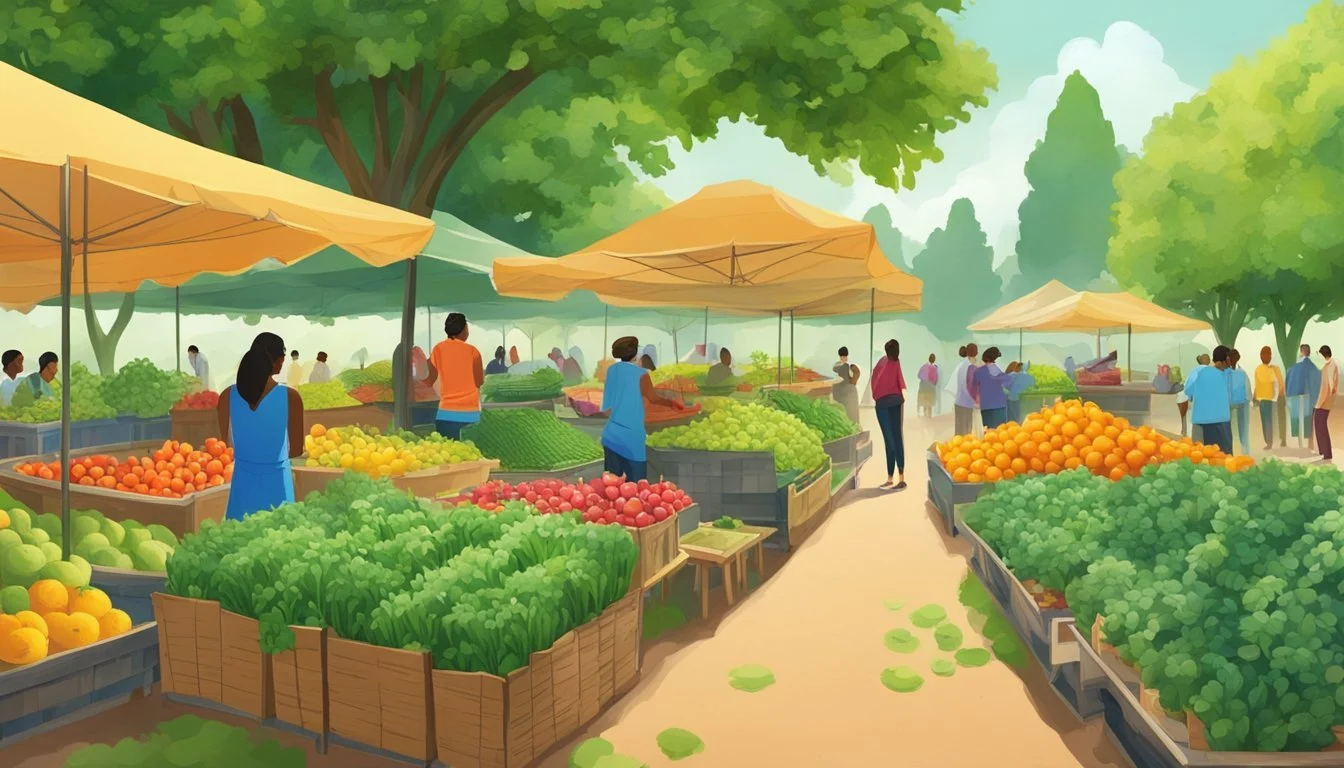Community Supported Agriculture (CSA) in Cape Coral, FL
Your Guide to Local Produce Farms
Community Supported Agriculture, commonly known as CSA, is a model of food production and distribution that directly connects farmers and consumers. In Cape Coral, Florida, this approach has become increasingly prevalent as residents seek fresh, locally grown produce and support sustainable farming practices. Through CSA programs, consumers purchase shares of a farm's harvest in advance, providing farmers with upfront capital to cover anticipated production costs.
Cape Coral's CSA programs offer a variety of locally grown products, from seasonal vegetables to farm-fresh eggs and grass-fed meats. Participants in the CSA model have the opportunity to foster a closer relationship with the source of their food, gaining insight into the challenges and triumphs of local agriculture. As a result, communities benefit from a strengthened local economy and a deeper understanding of the importance of food sustainability.
The CSA model in Cape Coral, FL, embodies a spirit of community and collaboration, as the exchange between consumers and farmers transcends mere transactional bounds. These programs not only contribute to healthier lifestyles through access to fresh, nutritious food but also implicate participants in the stewardship of their local land and the viability of their local farms, ensuring that agriculture remains a vital part of their community fabric.
Understanding CSA
In Cape Coral, FL, Community Supported Agriculture, or CSA, presents an opportunity for consumers to engage directly with local agriculture. Through membership, individuals can access fresh produce and participate in the shared risks and rewards of farming.
What Is CSA?
CSA is a model of agriculture where individuals, referred to as members, pledge support to a farm operation allowing the farmer to focus on quality food production. In exchange for their membership, consumers periodically receive a portion of the farm's harvest, commonly referred to as "shares". This model creates a direct link between the production of food and the consumer, fostering a community centered around agriculture.
Benefits of CSA
Advantages of CSA for consumers include:
Access to fresh, seasonal produce directly from local farms.
Opportunity to learn about farming practices and seasonality of crops.
Advantages for farmers involve:
A guaranteed market for their produce, reducing marketing risks.
Upfront capital from memberships, which aids in supplying the farm's operational needs.
Shared benefits for both parties involve a strengthened local food system and contributed support for sustainability.
CSA Membership Basics
A typical CSA membership involves:
Purchasing a "share" of the anticipated harvest.
Regularly receiving a box containing a portion of fresh produce and possibly other farm products.
Membership commitments might vary, including:
Season-long commitments, or flexible terms.
Options for "working shares", where members contribute labor in exchange for a reduced cost.
By understanding these CSA components, consumers in Cape Coral can make informed decisions about participating in local agriculture while supporting their community farmers.
Local CSA Farms in Cape Coral
Community Supported Agriculture (CSA) plays a pivotal role in connecting the residents of Cape Coral with fresh, locally-sourced produce. Below is a closer look at the available CSA farms, details of a standout farm, and an overview of when CSA offerings are typically available in this region.
List of CSA Farms
Rosy Tomorrows Heritage Farm: Offers a farm-to-table restaurant on a 100-acre farm with live music on Sundays.
LocalHarvest CSA Providers: A network featuring CSAs where consumers can receive local farm products on a regular basis.
Spotlight: Worden Farm
Worden Farm in nearby Punta Gorda, with pick-up sites including Cape Coral, provides a wide range of organic produce. They have earned a reputation for exceptional produce and offer regular shares to their CSA members.
CSA Seasonality
In Cape Coral, CSA farms generally operate on a seasonal basis, with offerings varying depending on the time of year. Fresh produce is typically most abundant late fall through spring, aligning with Florida's growing season.
CSA Offerings
Community Supported Agriculture (CSA) in Cape Coral, FL, presents a diverse range of fresh foods directly from local farmers to the consumers. These offerings enable individuals to partake in a share of the harvest, which typically includes a variety of organic and non-GMO fruits and vegetables, and in some cases, additional products like eggs, meat, and dairy.
Types of Shares
CSAs in Cape Coral offer different types of shares to cater to varying consumer needs. Shares commonly consist of weekly or bi-weekly boxes containing:
Seasonal Vegetables: A selection of root crops, leafy greens, and other garden-fresh items.
Fresh Fruits: High-quality, ripe fruits harvested at the peak of their season.
Eggs, Meat, and Dairy (Optional): Some CSAs provide the option to add farm-fresh eggs, grass-fed meat, and artisan dairy products.
Organic and Non-GMO Options
Farmers providing CSA services in Cape Coral place a strong emphasis on sustainable and health-conscious farming practices. They often offer:
Certified Organic Products: Grown without synthetic pesticides or fertilizers.
Non-GMO Produce: Ensuring that all offerings are natural and not genetically modified.
Expanding Beyond Produce
CSA shares have evolved to offer more than just produce; they can also include value-added products and other farm goods. Typical offerings may include:
Homemade Baked Goods: Breads, pies, and other treats made from farm-fresh ingredients.
Preserved Items: Jams, pickles, and canned goods prepared at the height of harvest.
Herbs and Flowers: Aromatic and culinary herbs, as well as vibrant, freshly-cut flowers.
Joining a CSA
When one joins a Community Supported Agriculture program, they typically pay a membership fee upfront and share the risks of farming with the producer. This section will granularly outline the financial commitment, the inherent uncertainties, and the sign-up procedure for potential CSA members in Cape Coral, FL.
Membership Fees and Payment Options
Membership Fee: The cost to join a CSA program can vary. For example, a local Cape Coral CSA has listed their membership at $695.00 for a 15-week duration.
Payment Options: Members can often pay via check to avoid additional fees, although credit card payments are usually accepted with a service fee, which can be around 2.2%.
Understanding the Risks
Participants in a CSA need to understand that they share in the risks of agriculture. Weather, pests, and other unforeseen circumstances can affect production. If yields are low, members may receive smaller shares than expected. This sharing of risk is a fundamental principle behind the CSA model, emphasizing the connection between consumers and the farming process.
How to Sign Up
Prospective members can sign up for a CSA by contacting the farm directly. Below are the usual steps involved:
Research local CSA options: Utilize platforms like LocalHarvest to find available programs in Cape Coral, FL.
Contact the CSA: Reach out through the provided contact information, often listed on the CSA's website under a "Contact Us" section.
Complete application: Fill out any necessary paperwork or online forms to express interest and verify your commitment.
Submit payment: Finalize your membership by submitting your payment according to the CSA's accepted methods.
Supporting CSA Growth
The proliferation of Community Supported Agriculture (CSA) within Cape Coral, FL, hinges on active community involvement, strategic marketing efforts, and robust educational support. Through these pillars, CSA can achieve sustainable growth, fostering a stronger local food system.
Community Events and Workshops
Community events and workshops play a pivotal role in bolstering CSA programs. By organizing regular events such as farm visits and cooking classes with CSA ingredients, local farms engage with their membership base and the broader public. Workshops that teach sustainable gardening practices or the benefits of farm-to-fork nutrition encourage community participation and investment in CSAs.
Example Events:
Seasonal Harvest Festivals
Weekly Farm Stands
Cooking Demonstrations with CSA Produce
Marketing and Promotion
Effective marketing and promotion strategies are critical for CSA visibility and member recruitment in Cape Coral. Creative use of social media platforms, local markets, and partnerships with local businesses can expand reach. Highlighting the direct relationship with farmers and the quality of fresh, local produce can differentiate CSA offerings from conventional grocery options.
Marketing Channels:
Social Media Campaigns (Facebook, Instagram)
Collaborations with Local Restaurants
Features in Community News Outlets
Educational Resources
Providing educational resources extends beyond informing potential CSA members about the service; it involves nurturing an understanding of the local agricultural system. The United States Department of Agriculture (USDA) provides data and materials which can be utilized to educate the community about the significance and benefits of CSAs. This shared knowledge reinforces community and ecological resilience while promoting the CSA model.
Educational Materials:
USDA Reports and Statistics
Flyers on Seasonal Eating
Online Guides for Starting a Home Garden
Agricultural Practices
In Cape Coral, Florida, Community Supported Agriculture (CSA) emphasizes meticulous agricultural practices centered around sustainability and efficiency during the growing and harvesting periods.
Sustainable Farming
CSA farmers in Cape Coral prioritize sustainable farming techniques to maintain the health of their farmland. They incorporate strategic crop rotations to preserve soil integrity and reduce the need for chemical fertilizers. Composting is another common practice, converting organic waste into nutrient-rich soil amendments. These farmers often choose to cultivate a diverse range of plants, including various flowers, herbs, and vegetables, which not only cater to the community's produce needs but also promote biodiversity. Sustainable farming extends to careful water management and the reluctance to use harmful pesticides, turning instead to natural alternatives for pest control.
Growing and Harvest Techniques
During the growing season, growers attentively monitor seed germination and plant health, adhering to organic standards wherever feasible. Planting schedules are meticulously planned to ensure a consistent supply:
Start seeds indoors to extend the growing seasons for certain crops.
Utilize companion planting to enhance growth and deter pests naturally.
Harvesting occurs at peak ripeness for optimal flavor and nutrition, often early in the morning to preserve freshness.
CSA members in Cape Coral might participate in special workdays, supporting the farmers with tasks such as planting or picking produce, which fosters a closer connection to the food they consume.


